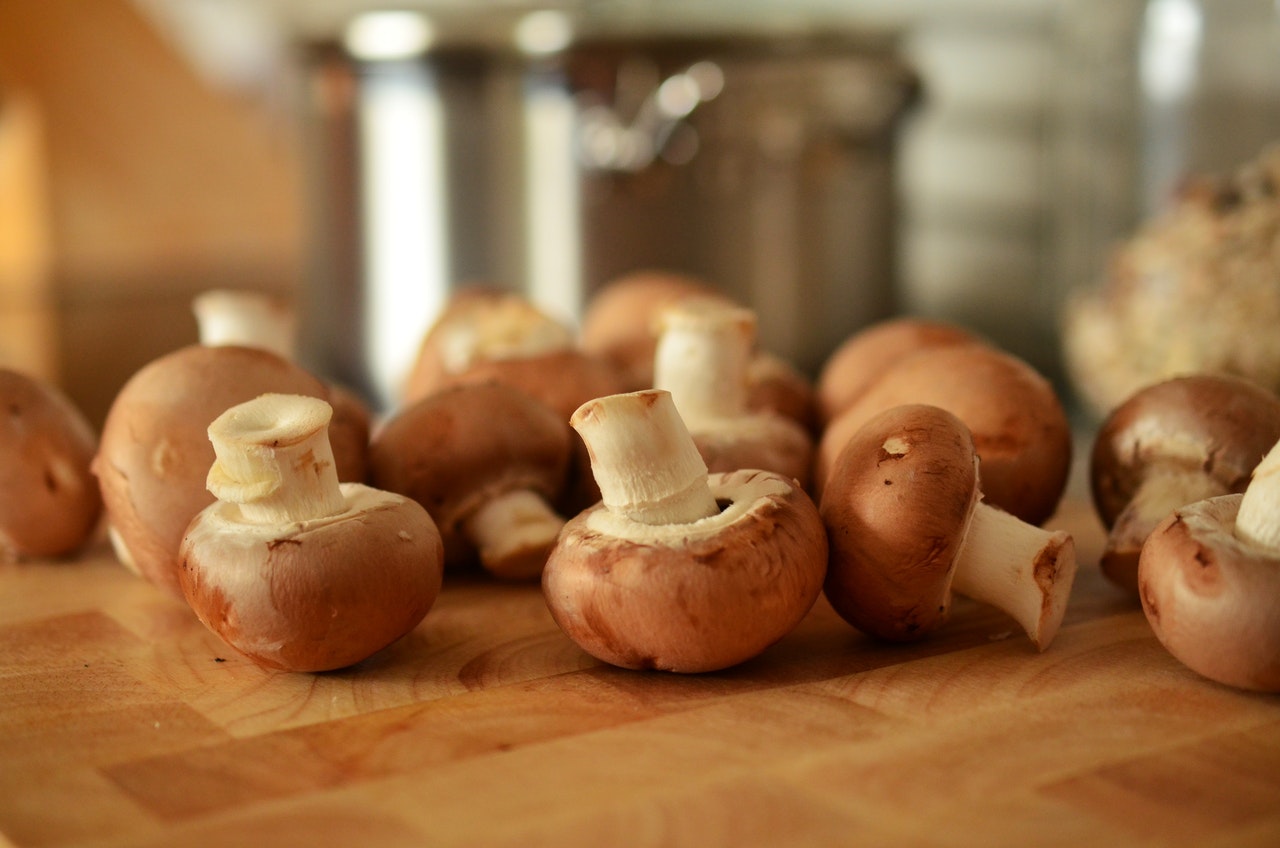There are lots of reasons to love mushrooms. They’re great sautéed in stir fry, cooked in risotto, stuffed with cheese or scattered on your favorite pizza. But these little fun guys offer benefits well beyond flavor. Many of the scrumptious species out there may also help your health. Here are just a few of the ways.
1. Mushrooms are rich in vitamin D
You’ve likely heard it before: Spend 10-30 minutes a day in the sun to get your dose of vitamin D, an important nutrient that plays a vital role in your bone health, immunity, cell growth, mood and more. What you might not know is that mushrooms work the same way!
When they’re out catching rays, they also produce vitamin D. This is because they contain ergosterol, a natural compound that converts to vitamin D21 when exposed to UV-B. Amazingly, this even works after they’ve been picked; you can actually increase the vitamin D in your store-bought mushrooms by simply drying them in the sun—an effect that can last for more than a year!
Thanks to this mechanism, mushrooms are one of the richest non-animal sources of vitamin D you can get. A half-cup of raw mushrooms—without added sunlight—will bring about 46% of your recommended daily intake to the table.
2. Mushrooms are packed with powerful antioxidants
When you think about high-antioxidant foods, you probably imagine colorful fruits and vegetables—not white and brown fungi. But mushrooms are actually packed with antioxidants. The two they have the most of—ergothioneine and glutathione—do a great job offsetting damage caused by free radicals, natural substances that can harm your body when they start to build up in your cells.2 Varieties like porcini, shiitake, oyster or maitake have the highest amounts of these helpful compounds, but really you’ll benefit from any mushroom you add to your meals.3
3. Mushrooms may help your immune system
Along with their high antioxidant properties, mushrooms are rich in micronutrients like selenium, zinc and vitamin B6, natural compounds that play a vital role in strengthening your immunity. Some species–including lion’s mane, shiitake, reishi and cordyceps—come with an added bonus: They contain a special fiber called beta-glucans that helps your body fight harmful bacteria and viruses.4
4. Mushrooms help your gut
Your body is inhabited by trillions of bacteria known as your microbiota, most of which camp out in your gut starting at birth. Your good microbiota—called probiotics—do all kinds of beneficial things. They help you stay regular, break down food, make vitamins, keep your immune system healthy and even impact your mood. As you age, the choices you make around your diet, medications, environment and lifestyle can alter your microbiota—sometimes in harmful ways. One way to counter these effects is with prebiotics, nutrients that feed your probiotics, the good guys in your gut. Mushrooms are a great source of prebiotics so pile them on your pizza to keep your gut in good order!
5. Mushrooms may support heart health
Another reason to celebrate mushrooms: they promote a healthy heart! Mushrooms are low in calories, cholesterol-free and contain almost no fat. They’re also low in sodium but high in potassium, which helps with normal blood pressure and heart health. So next time you’re cooking a stir fry or mushroom risotto, add an extra handful or two of these fungi. You’re doing both your heart and your palate a favor!
6. Mushrooms may help your brain
Find you forget where you put your car keys these days? As you age, your brain ages too, so processing information and multitasking can be more of a challenge. Mushrooms may just be able to lend a hand. This is because they’re rich in B vitamins that help your body produce neurotransmitters, chemicals that carry messages between your brain and body. For this reason, eating mushrooms at least twice a week can have a positive effect on your brain and nerve health.6 They’re not just good for your body; they’re also good for your mind.
About Agnes
Agnes is an accredited nutritionist by SNDA (Singapore Nutrition & Dietetics Association). Prior to Persona, she worked in community settings, providing training and managing events. She loves working with people and is passionate about changing people’s lives through nutrition.
Do you have questions on how you may benefit from supplements? Reach out to one of our experts, or take Persona’s free nutrition assessment, and learn exactly what you need to take your wellness to the next level.

